
Unlike a surgeon or a politician, the artist is not expected to accumulate years of knowledge and experience before assuming their role. You could say one does not become but rather is born an artist.
Yet history offers plenty of counter-examples. The French post-impressionist Henri Rousseau worked as a toll-and-tax collector until picking up a paintbrush in his 40s. Alfred Wallis, a British West Country fisher, started painting and drawing in his 70s. American folk artist Grandma Moses began producing her New England landscapes at 76; growing so popular that at the age of 93, she featured on the cover of Time magazine.
These late bloomers are often described as "naive" or "outsider" artists, rather patronising terms used to describe people with no formal artistic training. But they have also been recognised for their work's originality and virtuosity, showing that new beginnings are always possible.
London-based Libby Heaney, whose exhibition Heartbreak and Magic opens at Somerset House, London, in February, says art was her favourite subject in school. "But because I come from a very working-class background, my teachers and family advised me to study something they considered 'more serious' at university instead, which was theoretical physics with German," she says.
Heaney quickly doubted her choice but didn't have the funds to start over. So she resolved to specialise in quantum physics, undertaking a PhD followed by five years of post-doctoral fellowships at the University of Oxford and the National University of Singapore. She kept making art in her spare time, although she considered it more as an enriching "hobby".
As a quantum physicist, she received prizes, and published some 20 papers in international peer-reviewed journals. But throughout this period she was also "gradually saving up enough money to go back to university to study art".
Diese Geschichte stammt aus der January 05, 2024-Ausgabe von The Guardian Weekly.
Starten Sie Ihre 7-tägige kostenlose Testversion von Magzter GOLD, um auf Tausende kuratierte Premium-Storys sowie über 8.000 Zeitschriften und Zeitungen zuzugreifen.
Bereits Abonnent ? Anmelden
Diese Geschichte stammt aus der January 05, 2024-Ausgabe von The Guardian Weekly.
Starten Sie Ihre 7-tägige kostenlose Testversion von Magzter GOLD, um auf Tausende kuratierte Premium-Storys sowie über 8.000 Zeitschriften und Zeitungen zuzugreifen.
Bereits Abonnent? Anmelden

'It's really a disaster' The fight to save lives as gang war consumes capital
Dr James Gana stepped out on to the balcony of his hospital overlooking a city under siege. \"There's a sensation of 'What's next?'. Desperation is definitely present,\" the Médecins Sans Frontières (MSF) medic said, as he stared down at one of scores of camps for displaced Haitians in their country's violence-plagued capital.

Trailblazers The inspiring people we met around the world this year
From an exuberant mountaineer to a woman defiantly facing the guns of war, here are some of the brave individuals who gave us hope in a tumultuous 2024

Votes of confidence
From India to Venezuela and Senegal to the US, more people voted this year than ever before, with over 80 elections across the world. With rising authoritarianism and citizen-led resistance revealing its vulnerabilities and resilience in the face of unprecedented challenges, has democracy reached its breaking or turning point?
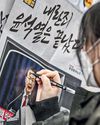
Out of touch How president sealed his own fate in martial law gambit
For Yoon Suk Yeol, this month's short-lived martial law declaration wasn't just a catastrophic miscalculation - it was the culmination of a presidency that had been troubled from the start.
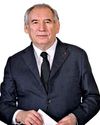
Son of the soil Who is François Bayrou, the farmer turned prime minister?
François Bayrou, the new French prime minister, calls himself a country man. A tractor-driving \"son of the soil\" and breeder of thoroughbreds, he has run for president three times, saying his rural roots and centrist politics led him to try to find common ground between left and right.
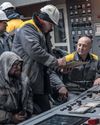
Power plant workers keeping the lights on
The Guardian Weekly visits a Soviet-era coal-fired thermal installation to learn how it has held up to Russian attacks
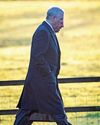
Prince charmed Alleged spy scandal may have exposed China threat
Prince Andrew should be commended for doing Britain a great service, according to longstanding China watcher Charles Parton. The now marginalised royal has, the analyst observed, \"almost single handedly\" succeeded \"in highlighting the threat to free and open countries\" posed by the contemporary Chinese state.
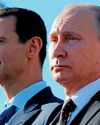
In Moscow, a new life of secluded irrelevance awaits Assad
He was whisked away without a last message to his people, the aircraft's transponder deliberately switched off to avoid detection as it departed from an airbase in Syria.
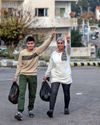
'We fear new oppression' Alawites worry over rebel rule
To prepare khubeiza, the leaves of the kale-like plant must be roughly chopped and sauteed with onions, garlic and a dash of salt. According to folklore, the recipe originated among the Alawite communities who lived in Syria's mountainous coastline where the fibrous, wild-growing plant can be found in abundance. So poor were the Alawites in Ottoman times, the story goes, that the only food they could find to eat was khubeiza, which sprouts like a stubborn weed every spring.

'Gisèle is waiting for explanations'
The Pelicot rape trial has horrified the world. But as it comes to an end, the questions it has raised about French society and rape culture have still not been answered.